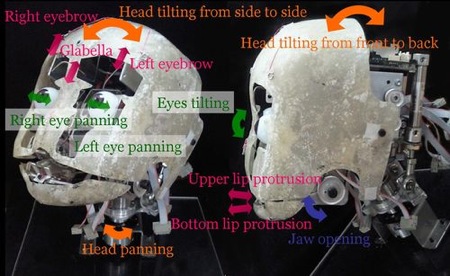 So this article is from a South African publication, but its statistics were compiled by PricewaterhouseCoopers and the attitudes expressed in it are indicative of those opposed to piracy. It also exemplifies the contradictory arguments made by those who champion big labels’ rights to continue overcharging for obsolete media formats.
So this article is from a South African publication, but its statistics were compiled by PricewaterhouseCoopers and the attitudes expressed in it are indicative of those opposed to piracy. It also exemplifies the contradictory arguments made by those who champion big labels’ rights to continue overcharging for obsolete media formats.
The piece shows its hand in the first line: “Digital piracy is inhibiting the growth in the legitimate digital market in SA.” You’d expect that the article would attempt to prove this thesis with corroborative facts and figures, right?
PWC also points out that, while the digital market is still very young, growth is expected to continue over the same forecast period.
“Digital has been increasing and spending will more than triple from R130 million in 2009 to R425 million in 2014, with an average compound annual growth of 26.7%,” PWC says.
Ah yes, piracy is killing the “legitimate” digital music market so much that the market is expected to “more than triple” over the next five years. The article then goes on to mention that sales of physical CDs will continue to decline, and it doesn’t event attempt to pin this on piracy. In fact, it ends with a quote from an industry executive who admits that “prices for digital formats are significantly lower than that for physical formats and this will result in a shift in the consumption between the two.”
Meanwhile, CrunchGear reports that the Hot New Rumor is that “music piracy has all but disappeared.” It’s true that music is no longer the most pirated file type–that distinction goes to movies and porn–but then the author ends his post with a bit of editorializing:
Not that this means anything, but I genuinely don’t know anybody who still downloads anything from public BitTorrent trackers. You’d be a fool to do so in 2011. That’s not to say that private BitTorrent sites aren’t still popular—they are, and they’re generally of a very high quality—but the days of the public BitTorrent tracker being the “go-to” place to grab your “stuff” surely has fallen out of favor within my sphere of influence.
And this seems to be the source of recent confidence in music piracy’s demise. But, um, I only use BitTorrent trackers for live audio rips, out-of-print releases, and hi-fidelity versions of music I already own. Where do the kids get most of their music these days?
They get it from Google. All they have to do is Google the name of the album they want and follow it with “Mediafire” or “Rapidshare” or even just “zip” or “rar.” The RIAA and MPAA have been catching on as of late–the MPAA recently sued Hotfile, for example–but this is a losing battle, because file hosting services themselves aren’t illegal. It’s the proliferation of “pirated” files on these services that rankles the industry. Any attempt to shut down a service like Mediafire will probably fail, for one of several reasons:
- There are, believe it or not, legitimate uses for file-hosting services like Hotfile and Mediafire, and banning these services outright would be seen as an unfair attack on their legal users.
- Moving your servers outside the U.S. makes it much more difficult for groups like the MPAA to sue you.
- It’s not Mediafire’s fault that people illegally upload copyrighted material to its site; it may or may not be their responsibility, depending on your perspective, but all shutting down Mediafire (or whatever site the industry’s attacking) will accomplish is getting someone somewhere to launch a new Mediafire. Ultimately, it’s end users’ responsibility to not illegally transfer files, and the RIAA stopped focusing on individual users back in 2008.
What can we learn from all this? Well, for one thing, industry leaders seem to be oblivious to the changing realities of online file sharing. Also, music piracy isn’t killing the industry as much as lawmakers and industry lobbyists would have you believe; according to Nielsen, digital album sales in the United States went up 13% in 2010.
 So
So 







